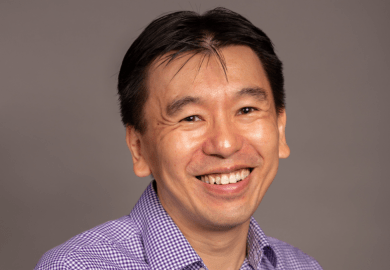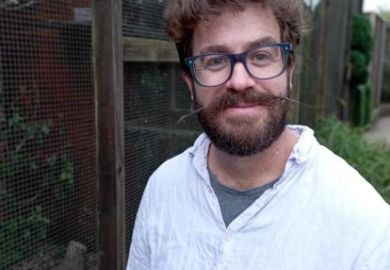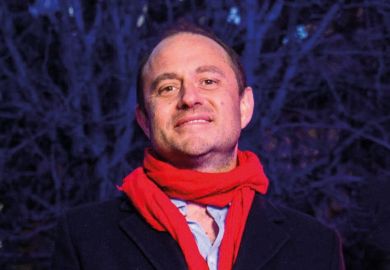Siobhan O’Neill is professor of mental health sciences at Ulster University and mental health champion for Northern Ireland. In this role – appointed and supported by the Northern Ireland Executive – her mission is to improve mental health by promoting evidence-based services and care.
Where and when were you born?
I was born 1974 in Derry and raised on a farm in rural Derry.
How has this shaped who you are?
It has shaped everything. It is only in recent years that I am understanding the impact of the Troubles on my own life. The daily news reports were characterised by death and destruction; many people endured horrendous suffering and yet I, for the most part, felt safe. I was a conscientious and anxious child. I was lucky to attend excellent schools, and I loved learning. Unemployment was rife in the 1980s and I believed that I had to work extremely hard to do well in life. I was acutely aware of how the odds were stacked against girls like me.
What advice would you give your younger self?
Learn how to manage the anxiety, do the breathing exercises, they really work. Don’t give up the art, and find a way to do music. Of course you can run; you can also do sport. Take a deep breath and put yourself out there, you’re as worthy as anyone else.
How well does academia look after the emotional well-being of staff?
It varies. Academia can be a tough work environment, and I am aware of staff in some institutions who have high workloads and unrealistic targets for research outputs and grant income. I feel that my university really values the well-being of staff, and this is reflected in policies and practices, and translates into a positive experience for students. However, ultimately it is the attitude of managers, and relationships within teams and in departments that makes the real difference. I work in a department with leaders who genuinely care about everyone’s well-being; I think it is a good place to work.
You have done a lot of work regarding intergenerational trauma and disorders associated with the Troubles. Do you think this is an issue that is finally becoming better understood by the public?
Not really. The impact that trauma can have on a parent’s relationship with their child, and how this shapes that child’s mental health is underplayed. The importance of infant attachment, and its biological basis, should be taught in schools. There’s a direct line between the parents’ and child’s mental health. Parents need real support so that they can be well, so that their children can be well. Untreated mental illness can cause so much harm; at the same time, those who have grown following significant trauma have been a force for good.
You were appointed by the Department of Health but have not been afraid to criticise the Northern Ireland Executive for its lack of action. Are you comfortable speaking truth to power?
It is an essential part of the job, but I must always be conscious of the impact of what I say. Throwaway remarks driven by anger or despair can cause so much harm. Criticism of mental health services can cause great hurt to those on the front line who are providing amazing care. Most people, including our political representatives, are doing their best in a dysfunctional system, in a traumatised society. I am careful about what I say, and I try to be judicious about fact-checking, evidence and the wisdom of experts, including experts by experience.
How has research on mental health evolved throughout your career?
The research methods themselves have changed, particularly with the advent of more sophisticated modelling techniques and advanced qualitative methods. There is a welcome recognition of the vital role of those with lived experience in shaping research priorities and in influencing how research is conducted. This means that the process is more ethical and the findings more useful. Research now recognises the underlying role of structural factors in shaping mental illness, and whole new lines of inquiry have emerged, such as the links between physiological processes and our social relationships, and how our diet and microbiome impact mental health.
How do you look after your own mental health?
I have a lot of stress that is unavoidable, and I don’t get to spend as much time as I’d like with friends, so I need to lean heavily on the other ways to physically manage stress. I run and do resistance training and weights. I exercise most days and it really does work. I also eat well and try to get lots of sleep, which means being in bed very early most nights. It mightn’t sound like much fun, but it works for me.
What are the best and worst things about your job?
The best thing is having a seat at certain tables, being part of the discussions and having an opportunity to make important points to the people who can make a difference. The worst is the constantly questioning: is this the right direction? What does the data say? Will this make any difference? Sometimes people think that I have more power than I have, or that I am responsible for the budgets and attack me personally, and that genuinely hurts. I also hate all the photos, I will never enjoy the photos, but people do need to know what I’m up to, so I’ve got to suck it up.
What would you like to be remembered for?
As a good parent who tried my best and influenced positive change.
patrick.jack@timeshighereducation.com
CV
1996 BA (Hons) psychology, Queen’s University Belfast
1998 MPsychSc (Hons) health psychology, National University of Ireland, Galway
1998-2000 Public health research officer, Western Health Board, Galway.
2000-05 Research assistant, associate and fellow, Schools of Nursing and Psychology, Ulster University
2005 PhD, psychosocial aspects of genetic testing, Ulster
2005-13 Lecturer, senior lecturer and reader, School of Psychology, Ulster
2013-present Professor of mental health sciences, Ulster
2020 Interim mental health champion for Northern Ireland
2021-present Mental health champion for Northern Ireland
Appointments
Diana Beech will head the policy-focused Finsbury Institute at City St George’s, University of London, where she will also become professor and associate vice-president for policy and government affairs. The former ministerial adviser will take on the new roles in April, when she steps down as London Higher chief executive. Dr Beech said there had “never…been a more important time” to connect research with practitioners and policymakers.
Mark Tesar has been named dean of the Faculty of Education at the University of Melbourne. He is currently head of learning development and professional practice and associate dean (international) in the University of Auckland’s Faculty of Education and Social Work. He said he wanted to ensure that education was “a pathway to opportunity and inclusion for all”.
Melanie Gray is joining the University for the Creative Arts as deputy vice-chancellor. She is currently executive dean of the School of Arts, Humanities, Social Sciences and Creative Computing at the University of Roehampton. UCA has also appointed Anastasios Maragiannis, associate head of the University of Westminster’s Design Creative and Digital Industries College, pro vice-chancellor for creative education.
Johns Hopkins University has picked James Allan, most recently vice-president of advancement at the University of Calgary, as assistant vice-president for alumni relations.
Rich Klein is moving to Illinois Institute of Technology as dean of the Stuart School of Business. He is currently vice-chancellor for institutional effectiveness and student success at the University of Nebraska Omaha.
Sonia Kumar has been appointed founding executive dean of medicine at St Mary’s University, Twickenham. She joins from the University of Leeds, where she is associate dean of community engagement and professor of medical education.
Vahid Vahidinasab has been appointed professor of sustainability at the University of Salford. He joins from Nottingham Trent University.
Register to continue
Why register?
- Registration is free and only takes a moment
- Once registered, you can read 3 articles a month
- Sign up for our newsletter
Subscribe
Or subscribe for unlimited access to:
- Unlimited access to news, views, insights & reviews
- Digital editions
- Digital access to THE’s university and college rankings analysis
Already registered or a current subscriber?




